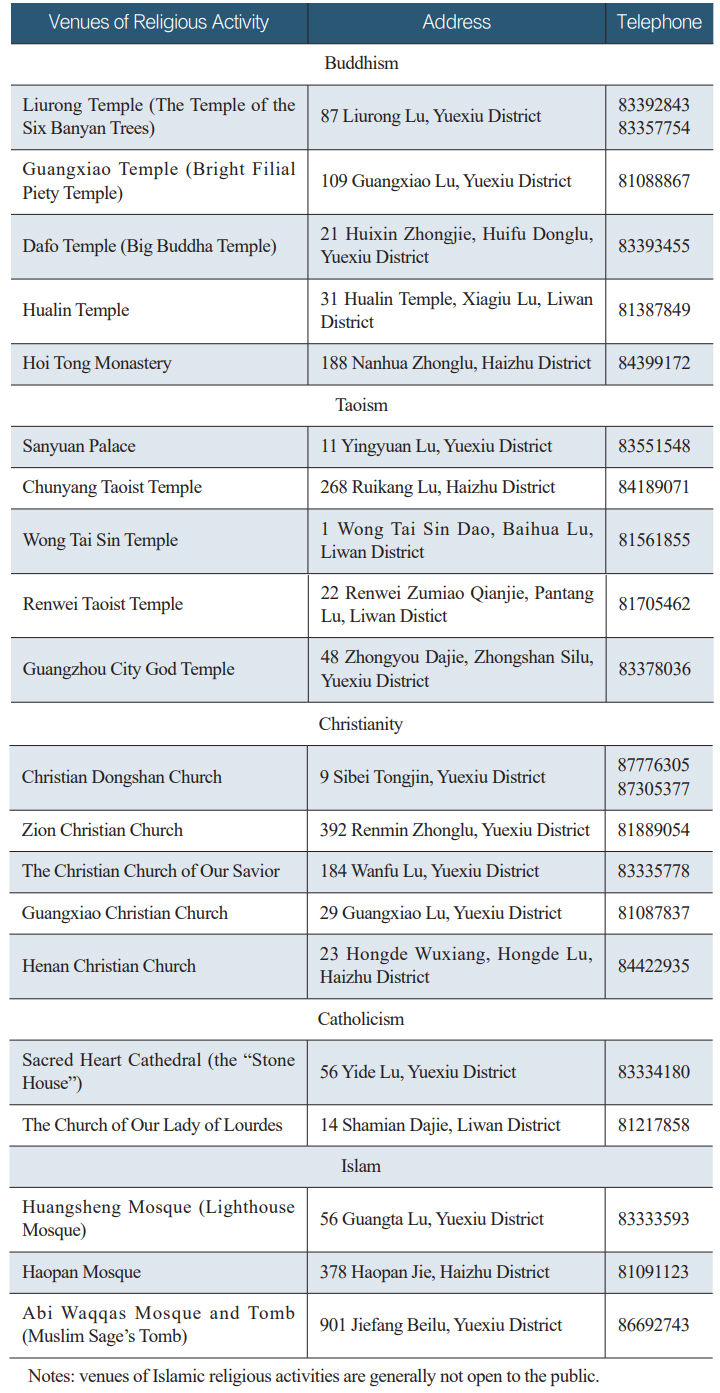(I) Regulations on religious activities in China
Foreigners are allowed to bring printed or audio-visual religious products and other religious articles for personal use when entering China. Relevant formalities are required with the China Customs for bringing those other than self-used ones into the country. It is forbidden to bring into China the printed or audio-visual religious products which contain contents that could jeopardize public interests of the country.
Foreigners are allowed to participate in religious activities in temples, Taoist abbeys, mosques and churches in China. At the invitation of religious groups at or above the level of province, autonomous region or municipality directly under the Central Government, foreigners may preach at venues of religious activity in China.
At the invitation of religious groups at or above the level of province, autonomous region or municipality directly under the Central Government, foreigners who visit China as religious practitioners may preach at venues of religious activity registered in accordance with the law in China.
At the invitation of religious groups at or above the level of province, autonomous region or municipality directly under the Central Government and with the prior consent of the religious affairs department of the people's government at or above the provincial level, foreign religious practitioners who visit China in other identities may preach at venues of religious activity registered in accordance with the law in China.
Foreign religious practitioners invited to preach at a venue of religious activity registered in accordance with the law in China shall abide by the regulations governing such venue and respect the religious beliefs and traditions of people in such venue.
With the consent of religious group in China, foreigners in China may invite Chinese religious practitioners to perform baptism, wedding, funeral and other religious rites and ceremonies for them according to their religious doctrines and traditions. Among them, religious wedding ceremony held for foreigners must be held between a man and a woman who have entered into a marriage relationship in accordance with the law. Group religious event of foreigners in China shall be held in a monastery, Taoist abbey, mosque or church approved by the religious affairs authority of the people's governments at or above the county level and registered in accordance with the law, or at a temporary venue designated by the religious affairs authority of the people's government at or above the level of province, autonomous region and municipalities directly under the Central Government.
The quota or funds provided by foreign organizations or individuals to support Chinese students studying abroad for the purpose of training religious practitioners shall be accepted according to actual need by the national religious groups of China, which shall coordinate the selection of Chinese students studying abroad.
Without due approval, foreign organizations or individuals are not allowed to recruit Chinese students studying abroad for the purpose of training religious practitioners in China.
Foreigners studying in religious colleges in China shall comply with the relevant provisions of the Regulations on the Administration of Acceptance of Foreign Students by Higher Learning Institutions and be approved by a national religious group and ffled with the State Bureau of Religious Affairs.
Foreigners lecturing at religious colleges in China are subject to provisions of the Measures for the Employment of Foreign Professionals in Religious Colleges.
Foreigners performing religious activities in China shall abide by Chinese laws and regulations. Foreigners shall not interfere with the establishment and changes of Chinese religious groups or venues of religious activity, or the selection and changes of religious practitioners by Chinese religious groups, or any other internal affairs of Chinese religious groups.
Foreigners are not allowed to establish religious organizations, offices, venues of religious activity, religious colleges or religious training courses in any name or form in China; nor appoint religious practitioners among Chinese citizens, develop religious followers, or preach in venues of religious activity without due approval; nor preach in premises other than legally registered venue of religious activity or hold religious gathering without approval; nor hold religious activity with the participation of Chinese citizens at temporary location of religious activity (except for Chinese religious practitioners invited to preside over such religious activity); nor produce or sell religious books, audio-visual religious products, electronic religious publications or any other religious articles, or distribute religious propaganda materials.
(II) Venues of religious activities open to the public
Guangzhou has a long history of diversiffed religious traditions, including five major religions: Buddhism, Taoism, Islam, Catholicism, and Christianity. Among them, Buddhism, Taoism and Islam have been introduced into Guangzhou for thousands of years, and Catholicism and Christianity for more than two or three hundred years. The city enjoys profound cultural heritage.



Source: Guide For Foreigners In Guangzhou(2021)





 京公网安备
京公网安备